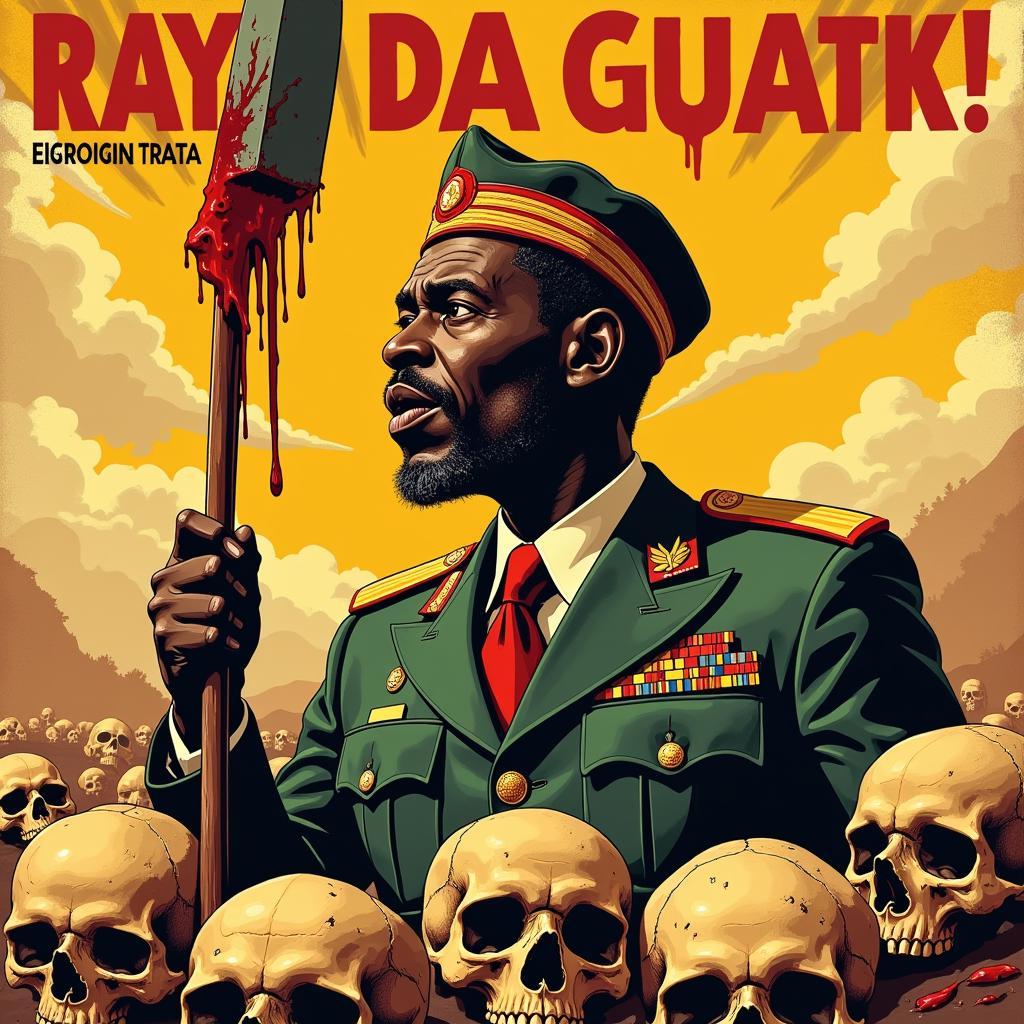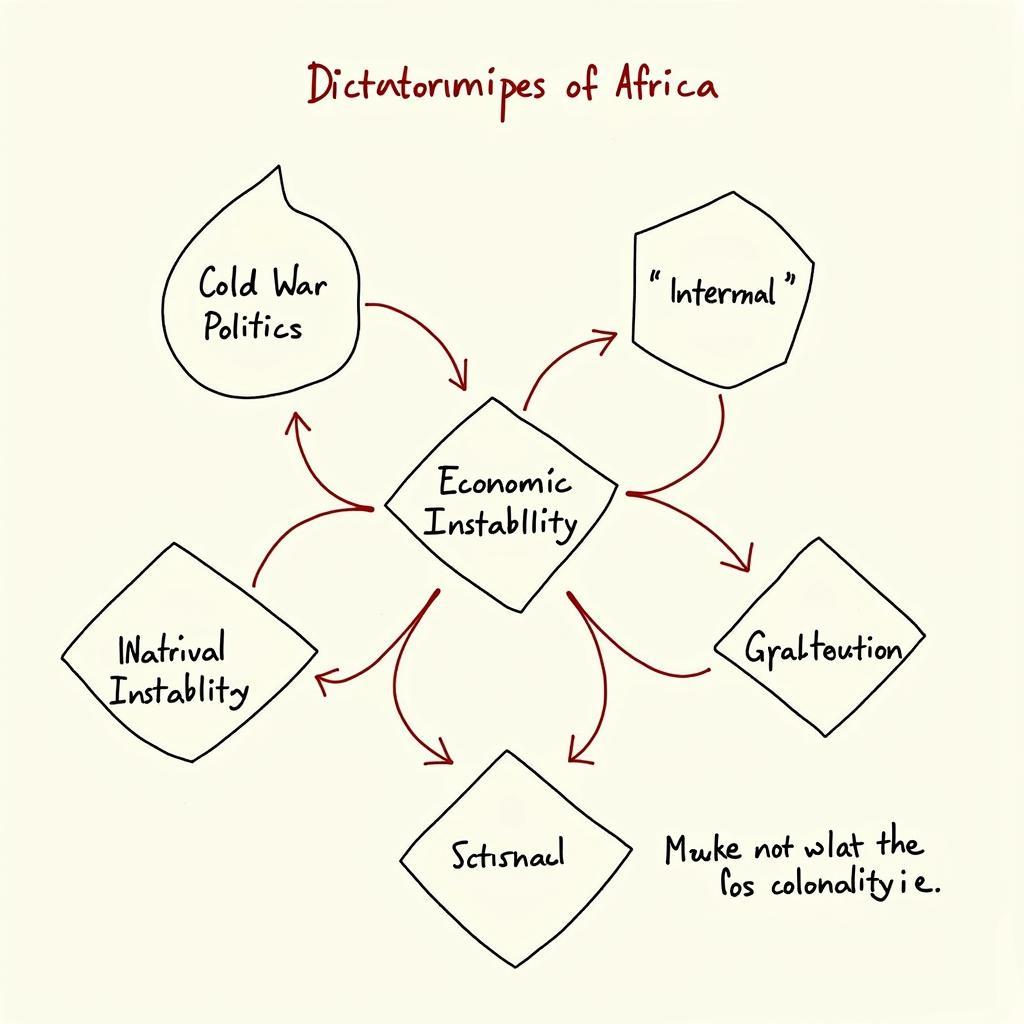The term “African Dictator Cannibal” often evokes images of brutal tyrants engaging in unthinkable acts. While the history of Africa, like any other continent, is not without its share of dictators, the association of cannibalism with African leaders is often rooted in racist stereotypes and colonial propaganda rather than historical facts. This article delves into the complex history of dictatorships in Africa, exploring the use of such harmful narratives and separating fact from fiction.
The Perils of Stereotyping: Deconstructing the “Cannibal Dictator” Myth
 Propaganda Poster Depicting African Dictator
Propaganda Poster Depicting African Dictator
The association of cannibalism with African leaders has its roots in colonial-era propaganda that sought to portray Africans as “savage” and “uncivilized.” This narrative served to justify European colonialism and the exploitation of African resources and people. By painting a picture of inherent barbarity, colonizers aimed to establish their supposed moral superiority and legitimize their rule.
It is crucial to recognize that cannibalism, as a practice, has been exceptionally rare throughout human history and is not exclusive to any particular region or culture. While isolated incidents may have occurred in various parts of the world, attributing it as a characteristic of African leadership is not only inaccurate but perpetuates dangerous stereotypes.
Dictatorship in Africa: A Nuanced Perspective
 Chart Showing Factors Leading to Dictatorship in Africa
Chart Showing Factors Leading to Dictatorship in Africa
The emergence of dictatorships in post-colonial Africa is a complex issue with deep historical roots. Factors such as:
- The legacy of colonialism: Arbitrary borders drawn by colonial powers, coupled with the deliberate underdevelopment of African economies and institutions, created fertile ground for instability and authoritarian rule.
- Cold War politics: Both the Soviet Union and the United States often supported dictators aligned with their respective ideologies, prioritizing strategic interests over democratic values.
- Ethnic tensions: In many African countries, ethnic divisions exploited by political opportunists led to conflict and undermined democratic processes.
It’s essential to avoid generalizations and understand that each dictatorship in Africa had its own unique context, motivations, and methods.
The Dangers of Misinformation and the Importance of Historical Accuracy
“Spreading misinformation about entire groups of people, especially based on harmful stereotypes, is irresponsible and dangerous,” says Dr. Abena Ngugi, a historian specializing in African Studies at the University of Nairobi. “It’s crucial to engage with history critically and challenge narratives that seek to dehumanize and demonize.”
Dr. Ngugi emphasizes that “Understanding the complexities of African history requires moving beyond simplistic narratives and engaging with diverse sources and perspectives.”
 African Scholars Researching Historical Documents
African Scholars Researching Historical Documents
By critically examining the historical context and challenging harmful stereotypes, we can gain a more accurate and nuanced understanding of Africa’s past and present. It is our responsibility to reject misinformation and promote respectful and informed discussions about the continent and its people.
Leave a Reply